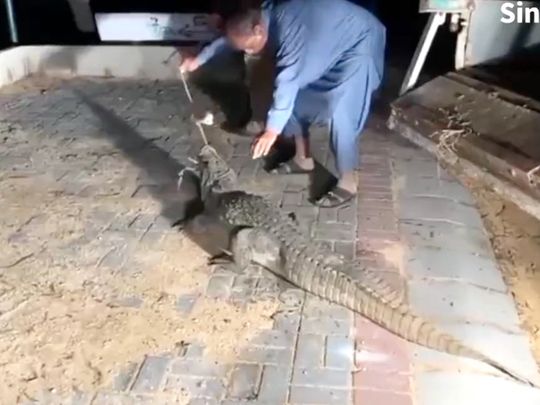
Islamabad: A crocodile carried down during heavy rains and floods terrified villagers living near Haleji Lake in the Thatta district of Sindh province.
At least one crocodile reportedly sneaked into nearby trenches on Thursday through crevices in the walls of the natural lake after monsoon rains sent water levels rising, local media reported.
Villagers said that it was not the first time that crocodiles escaped the lake and foraged into the village in search of food. Several people reported seeing crocodiles near the village in the past years and claimed that the reptiles have devoured a number of unguarded cattle. Villagers demanded local authorities and wildlife officials to ensure that the crocodiles do not escape the lake and harm the people, local TV channel 24 news reported.
However, the group of villagers near Jungshahi town of Thatta decided to take action this time to protect their families and managed to capture the crocodile in a dangerous operation.
Later, Sindh Wildlife Department officials, namely Syed Ali, Noor Khaskheli and Lalu Jogi, safely released the crocodile into Haleji Lake Wildlife Sanctuary which serves as a habitat for these semiaquatic reptiles.
The lake is also rich in raptors and fish and it supports a small population of marsh crocodiles - one of the threatened crocodilian species. The marsh or mugger crocodiles have been listed as vulnerable on the Intentional Union for Conservation of Nature (IUCN) Red List since 1982. The mugger is a medium-sized crocodile that has the broadest snout of all in its family.
There are believed to be about 200 marsh crocodiles in the lake spread over nearly 1,700 hectares.








